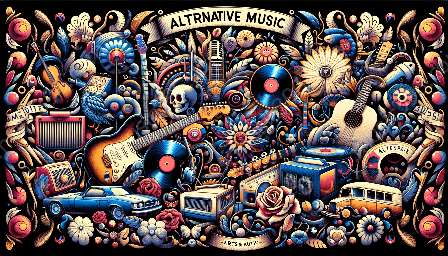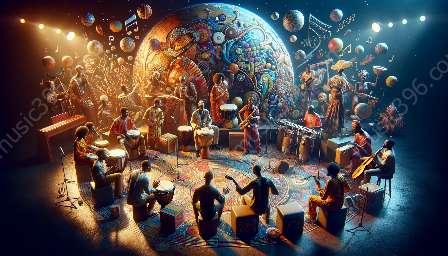Alternative music has deep historical roots that intertwine with various cultural movements, reflecting the social, political, and artistic shifts of different eras. As a genre, alternative music has evolved with and responded to changing cultural landscapes, embracing non-conformity and individual expression. Understanding its historical context sheds light on the diverse and influential nature of alternative music within music genres.
The Origins of Alternative Music
Alternative music emerged in the late 1970s and early 1980s as a response to the mainstream rock and pop music of the time. It was characterized by its rejection of the commercialism and conformity present in the music industry. Bands and artists within the alternative music scene sought to create music that was authentic, socially conscious, and independent from the traditional music business model.
Cultural Movements and Alternative Music
Alternative music has been closely linked to several cultural movements throughout history. It has often been associated with countercultural and anti-establishment movements, embracing themes of rebellion, social activism, and non-conformity. The punk and post-punk movements of the late 1970s and early 1980s, for example, significantly influenced the sound and ethos of alternative music, giving rise to influential bands such as The Clash, Joy Division, and The Cure.
The 1990s saw the alternative music scene expand and diversify, with the emergence of subgenres such as grunge, indie rock, and Britpop. These subgenres were often associated with distinct cultural movements, such as the grunge movement in the Pacific Northwest, which embodied a spirit of disillusionment with mainstream culture and a raw, introspective approach to music.
Impact and Evolution
Alternative music's connection to cultural movements has been instrumental in shaping its evolution and impact on society. The genre's willingness to challenge societal norms and address pressing social issues has made it a powerful and resonant form of cultural expression. From the political anthems of the punk era to the introspective lyricism of the grunge movement, alternative music has continuously reflected and responded to the shifting cultural landscapes of different time periods.
Furthermore, alternative music's connection to cultural movements has contributed to its ability to foster a sense of community and belonging among its listeners. The shared values and beliefs embedded in the music have often united individuals around common causes and messages, creating a space for dialogue and reflection on important societal issues.
Conclusion
Exploring the historical roots of alternative music and its connection to cultural movements unveils the intricate and influential nature of the genre. By understanding the social, political, and artistic contexts in which alternative music has flourished, we gain insight into its ability to challenge the status quo and serve as a catalyst for social change. This understanding positions alternative music as a dynamic and essential component of the diverse landscape of music genres.












































